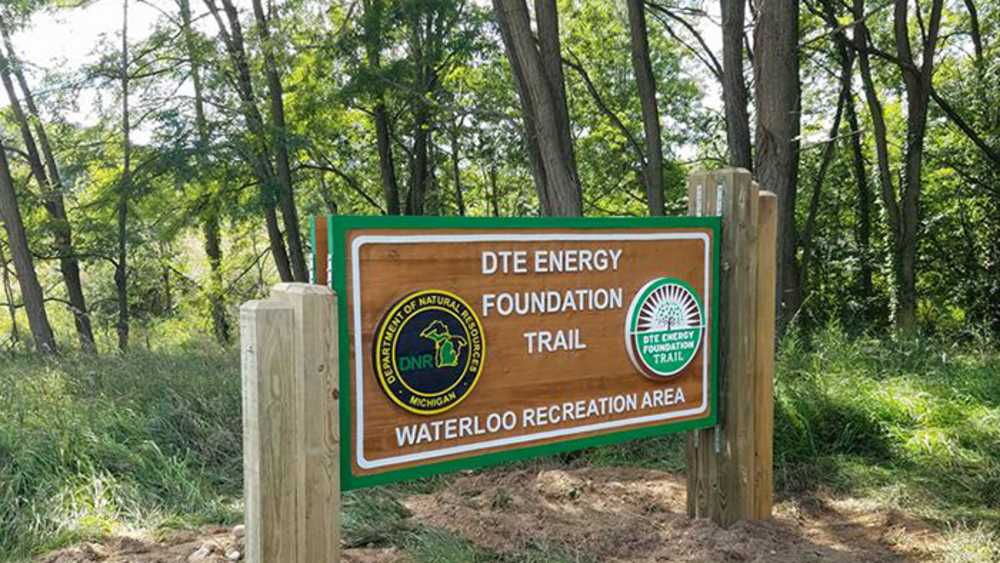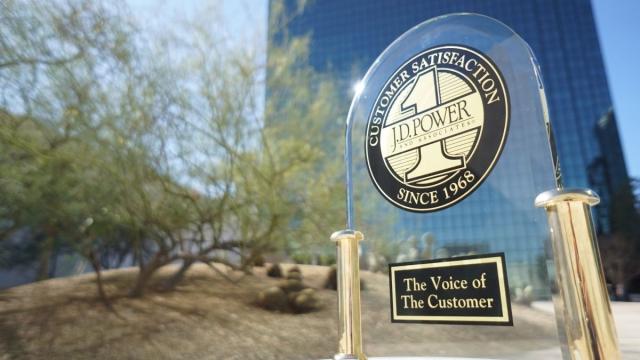DTE Energy Foundation expands environmental commitment for Earth Day, providing $1.48 million in grants to organizations throughout Michigan

The grants will support seven partners in safeguarding the Great Lakes and rivers, trees and wildlife habitats
The DTE Energy Foundation announced it has granted $1.48 million in vital funding to seven organizations supporting programs that enhance natural resources across Michigan. The grant will significantly bolster environmental programs across Michigan, including Traverse City, Ann Arbor, southeastern Michigan and Muskegon, in time for Earth Day on April 22.
“At the DTE Foundation, we know that a healthy environment is an essential ingredient for thriving communities,” said Lynette Dowler, president, DTE Foundation. “Through these grants and our valuable partnerships with dedicated nonprofits, we know people throughout Michigan will experience the benefits of this statewide support for years to come.”
See related article: Samsara Builds on Safety and Sustainability Success with Customers and Announces Goal to Reach Net-Zero Carbon Footprint
The grants will fund many initiatives, including the expansion of the Conservation Resource Alliance’s (CRA) River Care program. They will bring the program into new regions with an emphasis on collaborative work with land conservancies, tribal communities, the United States Department of Agriculture and more. The grants build on DTE Foundation’s existing support for the successful River Care program.
“The DTE Foundation’s deep commitment to healthy environments is a cornerstone in CRA’s River Care program, designed to completely restore northern Michigan’s waterways, from stem to stern,” said Amy Beyer, director at Conservation Resource Alliance. “When waterways function well, communities benefit, especially in terms of reducing costs and risks associated with water treatment, flooding, and catastrophic failure of structures like culverts and bridges, embankments, and dams.”
Other grant recipients:
- The Community Foundation for Southeast Michigan will direct this support towards its Great Lakes Way program, which will promote access to the Great Lakes by people of all ages, abilities, backgrounds, ethnicities and interests. Additionally, it will link residents and visitors to an impressive collection of world-class freshwater, wildlife and recreation assets.
- The Community Foundation facilitates permanent change in the seven counties of Wayne, Oakland, Macomb, Monroe, Washtenaw, Livingston and St. Clair, and helps donors invest in organizations they care about nationwide
- Conservation Resource Alliance plans to use this support for its River Care Program, helping to mitigate and address environmental issues that are present in Northern Michigan.
- The Conservation Resource Alliance was created in 1968 to maintain healthy ecosystems of land and water. With a service territory that spans 15 counties, four million acres, 700 miles of rivers, and 5,000 miles of tributaries, CRA with the help of local interest groups, local, state and federal governments, works to develop and implement locally driven solutions to natural resource and community issues.
- Huron River Watershed Council will use its grant to assist in the organization’s mission to support environmental and sustainability leadership with an emphasis on rivers, wildlife and water quality. A portion of the grant will go to the DTE Foundation Environmental Fellow who will lead a range of the organization’s projects, offering a comprehensive experience in watershed and ecosystem management.
- Huron River Watershed Council is a coalition of residents, businesses and local governments that protects and restores the river for healthy and vibrant communities.
- Michigan Department of Natural Resources will use its grant for the DTE Foundation Tree Planting Program, which will enhance the community tree canopy coverage, increase tree species diversity, and demonstrate proper tree planting and maintenance techniques for long-term health.
- Michigan Department of Natural Resources is committed to the conservation, protection, management, use and enjoyment of the state’s natural and cultural resources for current and future generations.
- Muskegon River Watershed Assembly will use the funds to help preserve, protect, restore and sustain the Muskegon River. It will also promote the sustainable use of the Muskegon River and the land it supports through conservation and educational initiatives with the Little River Band of Ottawa Indians. A portion of the grant will be directed toward the DTE Foundation Environmental Fellow, who will assist with projects providing in-depth and real-life experiences in ecosystem management, specifically targeted at the Maple River Restoration project in underserved communities in Bridgeton and Cedar Creek Townships.
- Muskegon River Watershed Assembly is dedicated to the preservation, protection, restoration, and sustainable use of the Muskegon River, the land it drains, and the life it supports, through educational, scientific and conservation initiatives.
- ReLeaf Michigan will direct this support towards planting trees in a variety of Michigan communities. The grant will also allow ReLeaf to host a DTE Foundation Environmental Fellow from an underrepresented group who will receive two years of work experience focused on fieldwork, project coordination and management in urban and rural forestry.
- ReLeaf Michigan is a statewide volunteer organization focused on tree planting and education. ReLeaf Michigan is Michigan’s only statewide tree-planting non-profit organization, working with communities and organizations throughout Michigan to protect and restore our urban tree canopies.
- Wildlife Habitat Council will use its grant to assist with the organization’s day-to-day needs to preserve the state’s treasured natural habitats.
- Wildlife Habitat Council partners with corporations, their employees, fellow conservation organizations, government agencies and community members to recognize and encourage wildlife habitat projects for conservation and education.
Source: DTE Energy Foundation







